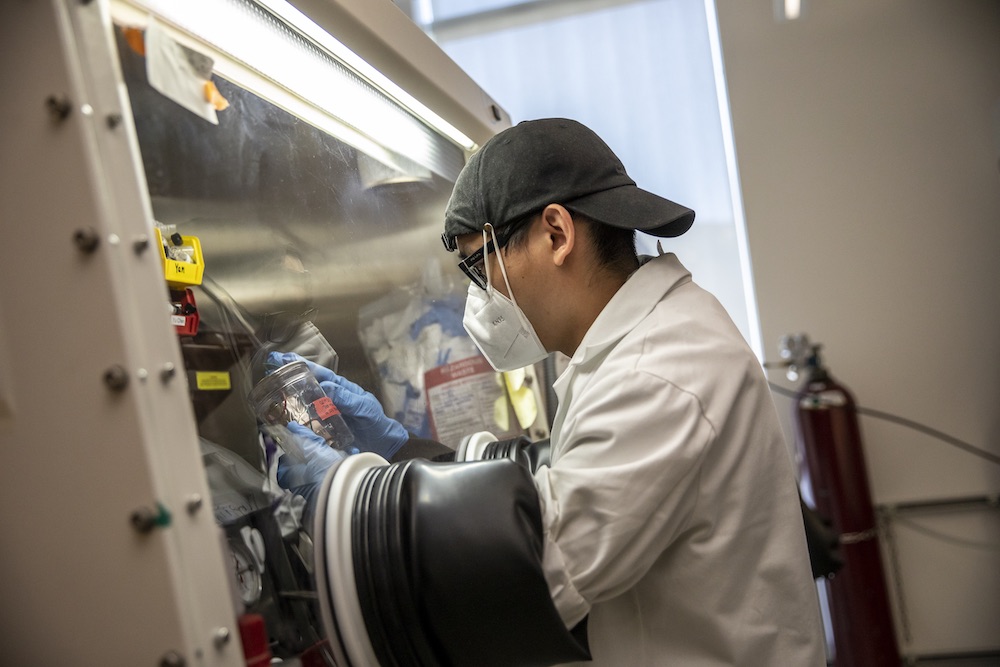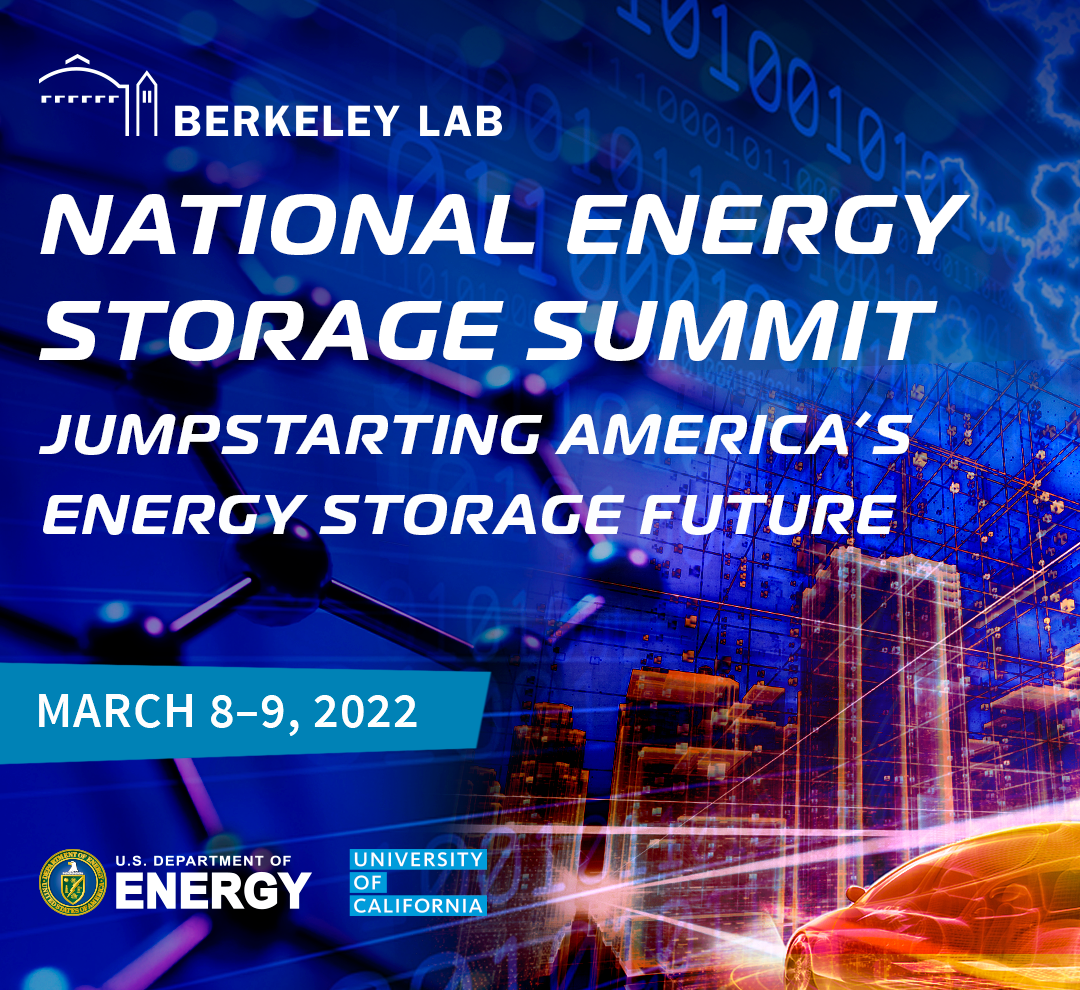
Berkeley Lab researchers have access to an array of specialized facilities for advancing battery innovation. (Credit: Marilyn Sargent/Berkeley Lab)
Berkeley Lab has been awarded more than $13 million for five research projects that will accelerate the development of advanced lithium batteries and smart, connected vehicles, making it easier to switch to electric vehicles.
The awards were announced by the Department of Energy and are part of a total of $209 million in battery research projects selected by DOE’s Vehicle Technologies Office. The funding to Berkeley Lab is for a five-year period. Three of the five Berkeley Lab projects are to develop solid state lithium batteries, which have the potential to be safer and have much higher energy density than conventional lithium-ion batteries.
“This is very promising. It’s an enormously important path for the energy storage industry because solid state batteries are both safer – they don’t have highly flammable liquid electrolytes, like today’s lithium-ion batteries do – and will lead to higher energy density,” said Berkeley Lab battery scientist Gerbrand Ceder, the lead scientist on one of the projects. “With conventional lithium-ion batteries we don’t have much of a path left to higher energy density because it’s already almost fully optimized.”
With the new funding Berkeley Lab scientists will investigate better and longer-lasting electrolytes for solid state batteries and new ways to manufacture them. “Making solid state batteries is considerably different from the way lithium-ion batteries are made today,” Ceder said.
The other two projects focus on rapid charging and optimizing cooperative driving automation. “This funding will continue our groundbreaking research on cooperative driving, which develops automated vehicle technologies and operational strategies to minimize energy use and decrease traffic congestion on our roadways,” said Tom Kirchstetter, director of Berkeley Lab’s Energy Analysis & Environmental Impacts Division.
DOE has a goal of achieving extreme fast charging, allowing vehicle batteries to be fully charged in less than 15 minutes to be competitive with fossil fuel-powered vehicles. It also has a goal of streamlining cooperative vehicle-to-vehicle communications and controls that reduce the overall energy use and emissions in transportation.
 “It’s exciting to see our 100-plus energy storage researchers driving the science and technology of energy storage forward, in partnership with DOE,” said Noel Bakhtian, executive director of Berkeley Lab’s Energy Storage Center. “To catalyze solutions and partnerships around specific challenges to America’s energy storage future we’re convening a national summit on energy storage next March. Our goal for the summit is to connect national and regional thought leaders across industry, government, communities, and the research enterprise on topics from the lithium supply chain to the rapid timeline for deployment needed to reach a clean energy future.”
“It’s exciting to see our 100-plus energy storage researchers driving the science and technology of energy storage forward, in partnership with DOE,” said Noel Bakhtian, executive director of Berkeley Lab’s Energy Storage Center. “To catalyze solutions and partnerships around specific challenges to America’s energy storage future we’re convening a national summit on energy storage next March. Our goal for the summit is to connect national and regional thought leaders across industry, government, communities, and the research enterprise on topics from the lithium supply chain to the rapid timeline for deployment needed to reach a clean energy future.”
The National Energy Storage Summit, Jumpstarting America’s Energy Storage Future, will be open to the public and take place March 8-9, 2022.